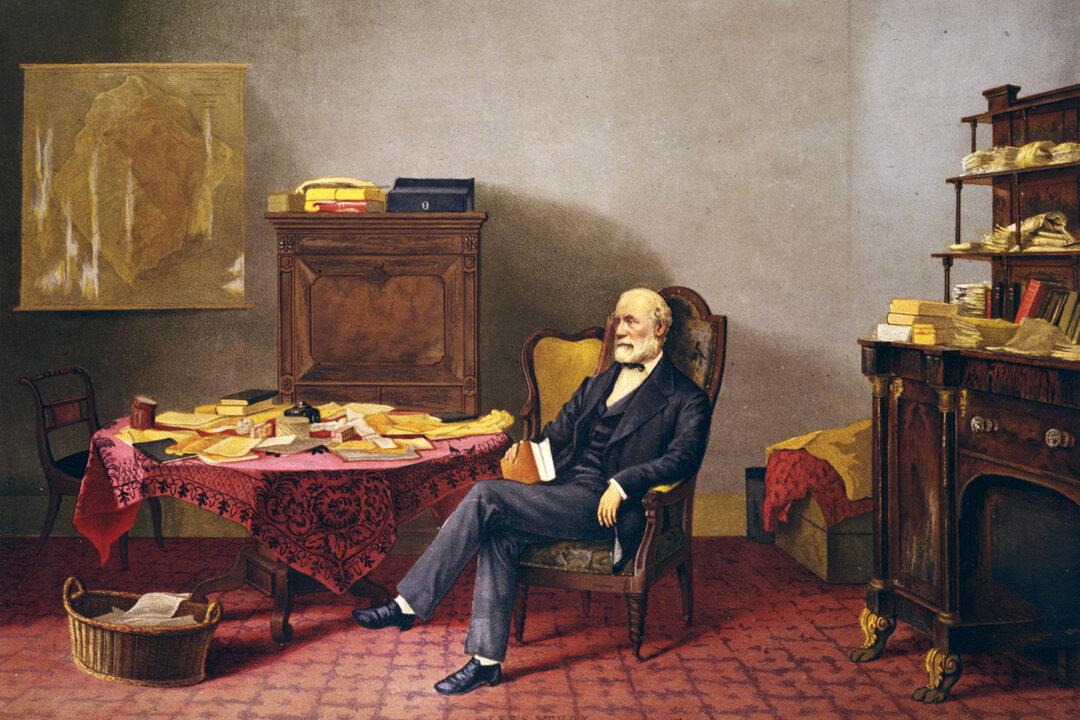In the preface to “Robert E. Lee: A Biography,” published in 1995, professor and Civil War historian Emory Thomas takes note of his subject’s ever-changing status in the eyes of others. When war between the North and South erupted in April 1861, Gen. Winfield Scott revealed his deep admiration for his former staff officer by offering Col. Lee command of the army being formed by Lincoln. Refusing to raise his sword against his beloved state of Virginia, Lee rejected this honor and the opportunity for fame. He resigned his commission.
For the rest of his life, and down to our present time, Lee’s deeds brought both garlands and brickbats. As Mr. Thomas says, “Lee has been the patron saint of the American South,” yet historical figures outside of that region—Winston Churchill, Theodore Roosevelt, his cousin Franklin, and others—also lavished praise on Lee for his leadership skills and character.






